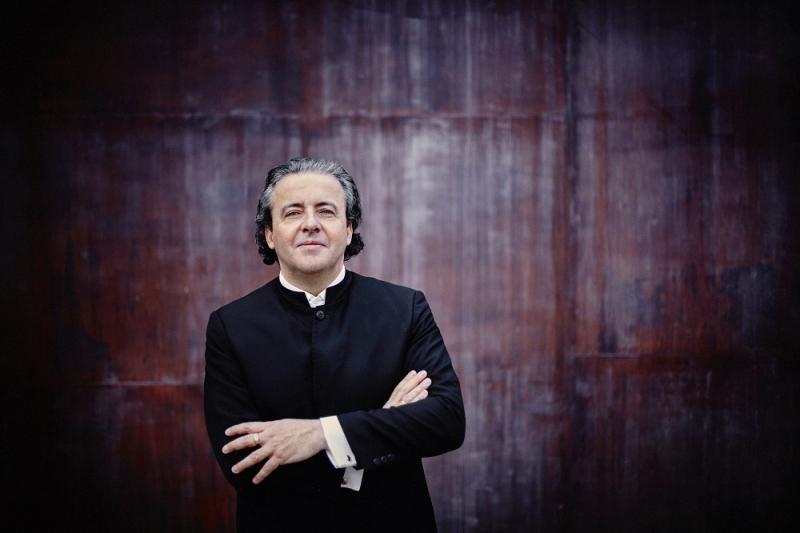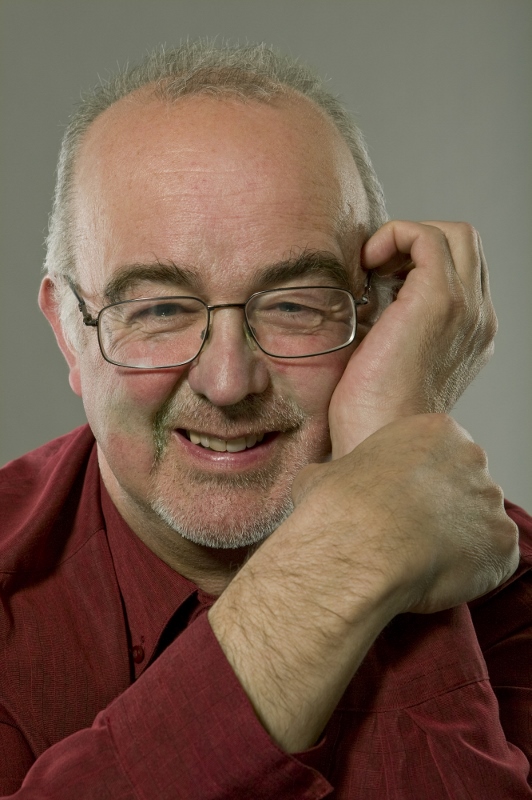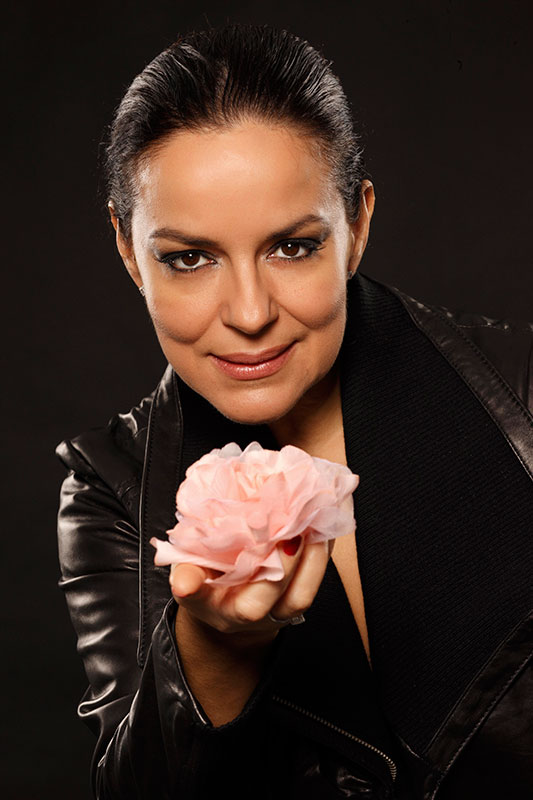Roscoe, BBC Philharmonic, Mena, Bridgewater Hall, Manchester review - a scenic send-off | reviews, news & interviews
Roscoe, BBC Philharmonic, Mena, Bridgewater Hall, Manchester review - a scenic send-off
Roscoe, BBC Philharmonic, Mena, Bridgewater Hall, Manchester review - a scenic send-off
Spanish sunshine in an operatic farewell to orchestra’s departing chief

Juanjo Mena, chief conductor of Manchester's BBC Philharmonic for the past seven years, took his official leave of them with a programme reflecting his great love, the music of his Spanish homeland.
So there was a festive feeling in the air from the outset: the concert was to be a celebration of a warm relationship and remarkable achievement. The BBC Philharmonic has given a response to Mena that has been appreciative from the start (he came to them after Yan Pascal Tortelier and Gianandrea Noseda, and never tried to uproot their style or fashion a make-over), and he has given them the freedom to enjoy their music-making at every level. Put simply, he has infectious rhythm and soaring melody in his soul, and it has shown in their playing.
Albéniz’ overture to The Magic Opal, an operetta, may not be the greatest piece the composer wrote (or even the most characteristically Spanish), but it’s full of brightness, theatrical in flavour and largely based on one big up-and-down leaping tune. Mena and the BBC Phil (led by Zoe Beyers) devoted as much care to it as any weightier piece, and, despite only a 40-string ensemble (later to be enlarged), it came over with sumptuous sound and self-effacing wind contributions.
 Martin Roscoe (pictured left by Eric Richmond) was the piano soloist in Albéniz’ Rapsodia Española, in George Enescu’s orchestration. It’s Albéniz in earlier, folk-influenced mien and had much more the conventional sound of Spain, with tambourine, castanets and traditional dance rhythms. It was originally made for two pianos, which shows in those places where you hear pianistic figurations faithfully transcribed into orchestral lines alongside the solo part, but the latter is a considerable virtuoso vehicle – one thoroughly mastered by Roscoe. The atmosphere was there with no mistake, from the opening harp-delivered “guitar” strumming, and the Philharmonic entered its spirit with a will.
Martin Roscoe (pictured left by Eric Richmond) was the piano soloist in Albéniz’ Rapsodia Española, in George Enescu’s orchestration. It’s Albéniz in earlier, folk-influenced mien and had much more the conventional sound of Spain, with tambourine, castanets and traditional dance rhythms. It was originally made for two pianos, which shows in those places where you hear pianistic figurations faithfully transcribed into orchestral lines alongside the solo part, but the latter is a considerable virtuoso vehicle – one thoroughly mastered by Roscoe. The atmosphere was there with no mistake, from the opening harp-delivered “guitar” strumming, and the Philharmonic entered its spirit with a will.
La Vida Breve is an interesting specimen – almost a kind of national talisman to Spanish performers, I would imagine. It has elements of verismo in its low-life setting, a gypsy community, and Salud is a heroine who’s duped by her lover, Paco, only to discover his marriage to another girl in full swing (complete with flamenco wedding singer). Her uncle wants revenge: she wants confrontation – and when it comes she dies of shame (or something more, if a director is so inclined), as her own song at the outset predicted. The story could be taken from a present-day soap opera, with its pride, passion and sudden death.
If Juanjo Mena wanted to set down a recording that encapsulated all its Spanish essence, I’m sure he succeeded. Concert performance is not semi-staging, and the performers were there to sing their roles rather than act them, but it was red-hot nonetheless. The voices themselves carried characterisation, from Fabiola Herrera’s insistent power, Cristina Faus’s more moderated mezzo as her Grandmother, Aquiles Machado’s slimy two-timer Paco, to Josep Miquel Ramón as Manuel, the new bride’s brother who decently tries to keep the show on the road at the reception.
 A vivid voice contribution came from Segundo Falcón as the wedding singer (with guitarist Vicente Coves in accompaniment) – the real McCoy of flamenco style no doubt, and not an opera-trained singer trying to imitate it. Raquel Lejendio as Carmela, the bride, and Gustavo Peña as the Voice from the forge, completed the cast.
A vivid voice contribution came from Segundo Falcón as the wedding singer (with guitarist Vicente Coves in accompaniment) – the real McCoy of flamenco style no doubt, and not an opera-trained singer trying to imitate it. Raquel Lejendio as Carmela, the bride, and Gustavo Peña as the Voice from the forge, completed the cast.
But it was very much the orchestra’s day in the sun as well as the soloists’. Nancy Fabiola Herrera (pictured right by Fernando Vázquez Morago) is a great Salud, bringing drama to the tale and a near-declamatory line to her two big scenas, and even she had to battle with the orchestral sound at times – she won most of her contests. The others were not universally successful, and of course balance can be corrected in a recording, so it may sound perfect in transmission.
But Mena used his orchestra to paint wonderful pictures – the foreboding of the opening, the hot sunshine of Act One’s workplace, the fabulous panorama of Granada in the first intermezzo (with the chorus ladies woven into the tapestry), the style and swagger of the wedding dance, and the subtler opening to the final tragedy, where the Philharmonic strings provided expressive tone and the scene was built to a dramatic peak of rhythm and life by chorus (hand-clapping in perfect unison) and orchestra together. You don’t need costumes, scenery or much else at all when music depicts a story as skillfully as that, and the BBC Philharmonic gave their departing chief a night to remember.
rating
Explore topics
Share this article
The future of Arts Journalism
You can stop theartsdesk.com closing!
We urgently need financing to survive. Our fundraising drive has thus far raised £49,000 but we need to reach £100,000 or we will be forced to close. Please contribute here: https://gofund.me/c3f6033d
And if you can forward this information to anyone who might assist, we’d be grateful.

Subscribe to theartsdesk.com
Thank you for continuing to read our work on theartsdesk.com. For unlimited access to every article in its entirety, including our archive of more than 15,000 pieces, we're asking for £5 per month or £40 per year. We feel it's a very good deal, and hope you do too.
To take a subscription now simply click here.
And if you're looking for that extra gift for a friend or family member, why not treat them to a theartsdesk.com gift subscription?

Add comment